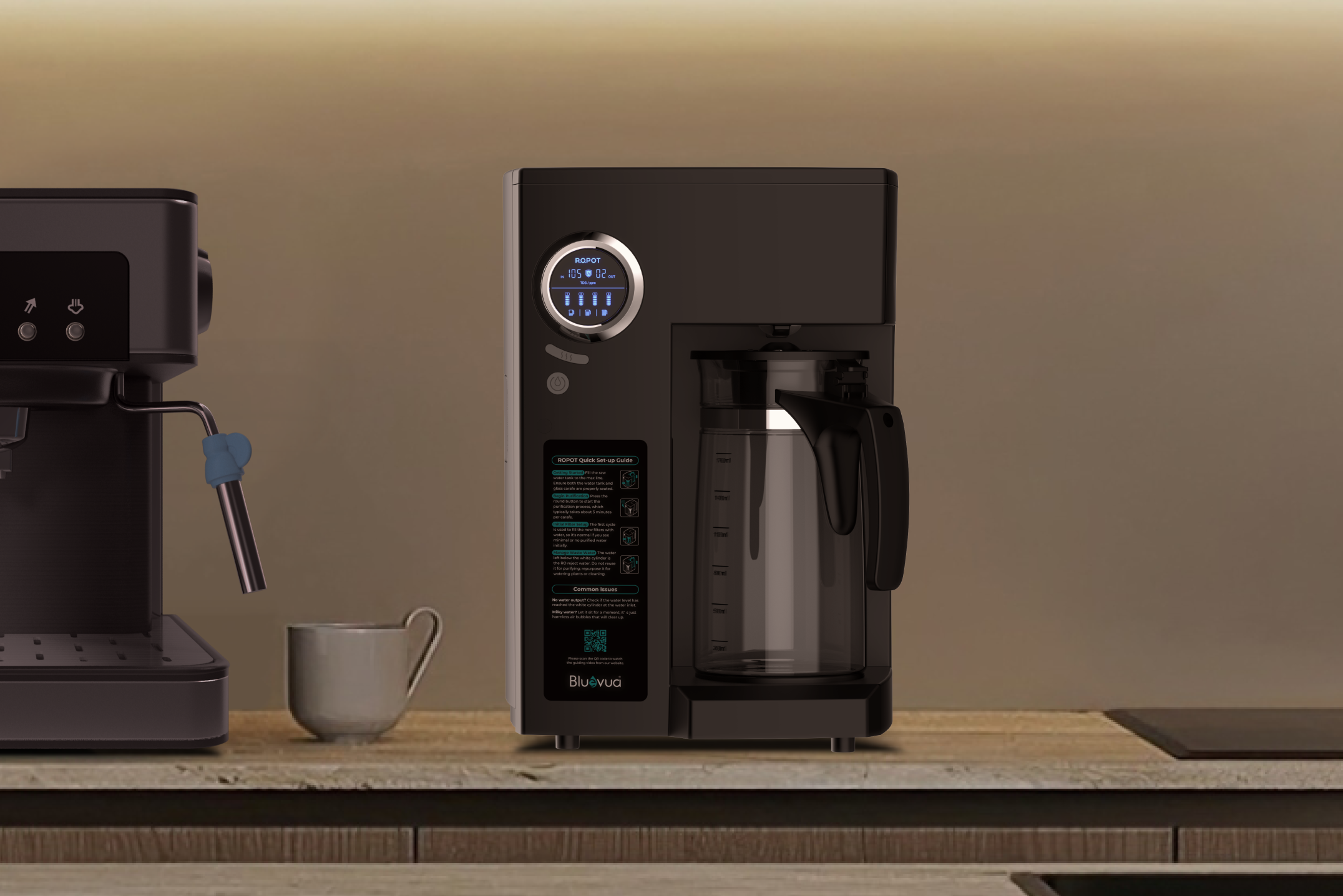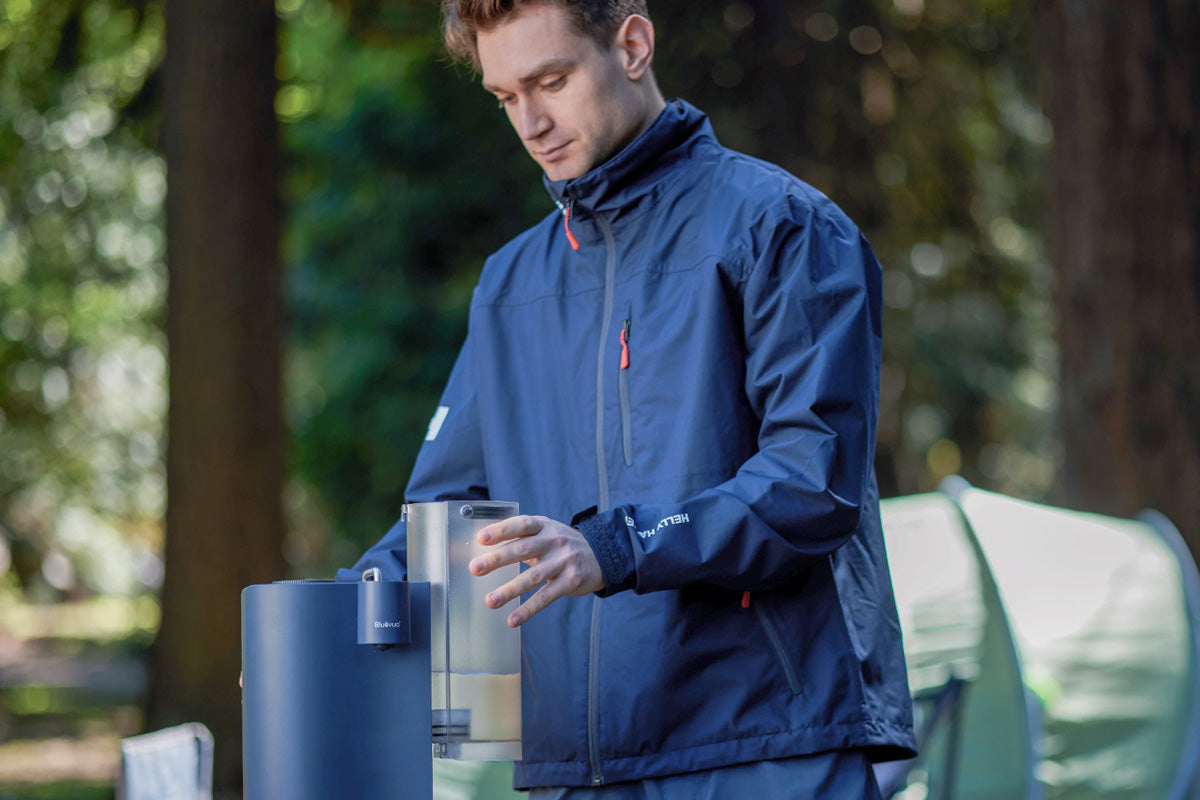Happy National Hydration Day! While the classic "8 glasses a day"1 advice has good intentions, it oversimplifies a much more dynamic and personal need. Hydration isn’t one-size-fits-all, it’s influenced by how you move, where you live, your health, and even your age. If you’ve ever wondered how much water you actually need each day, you’re in the right place. Let’s go beyond the myth and explore how to truly meet your daily water needs.
Your Lifestyle Affects Your Water Needs More Than You Think
One of the most significant factors influencing hydration is your level of physical activity. Whether you’re heading to the gym, walking your dog, or chasing after toddlers, movement increases your body’s need for water. The more you move, the more water you lose—especially through sweat. While a slow stroll might not make a major impact, high-intensity workouts or even a long hike can deplete your body’s fluid stores quickly.
Hydration plays a vital role before, during, and after any physical activity. Pre-hydration helps ensure your body starts in balance. Drinking during exertion helps replenish the water you’re losing in real time, and rehydrating afterward supports recovery. Athletes often weigh themselves before and after intense workouts to estimate fluid loss. According to the American College of Sports Medicine, for every pound lost, about 16 ounces of water should be consumed to rehydrate properly.

Even your job can influence your water needs. If you work outdoors, do physical labor, or spend time in hot conditions, you’ll need more hydration than someone at a desk. And even if you’re mostly sedentary during the week, your hydration needs will rise on active weekends. Hydration isn’t static, it’s as dynamic as your day.
Climate and Elevation: Nature’s Role in Dehydration
Where you live and the environment you spend time in have a surprising impact on the amount of water your body needs. Hot or humid climates increase perspiration, requiring you to drink more to stay balanced. Humid air slows down the evaporation of sweat2, which means your body has to work harder, and sweat more, to keep cool.
On the flip side, dry environments can be just as dehydrating. Even if you’re not visibly sweating, dry air causes water loss through your skin and breath3. This is particularly true in winter months when central heating systems dry out indoor air without you even noticing. And contrary to popular belief, cold weather doesn’t reduce your need for hydration. You’re still losing water through respiration. Think of the visible “steam” you see when you exhale on a chilly morning.

If you live or travel at high elevations, dehydration risk increases4. The thinner air leads to faster breathing, which means you lose more water through your lungs. Your body may also produce more urine while adjusting to the altitude. All these factors combined mean you’ll need to be extra intentional about drinking water if you’re spending time in the mountains.
Age, Life Stage, and Hydration: It’s Not Just a Number
Hydration needs shift as you age. Babies and young children, for instance, require more water per pound of body weight than adults and 75% of infants' bodies are water5. They’re also more vulnerable to dehydration, especially during illness or in hot weather. For them, staying hydrated is crucial to supporting rapid development and overall health.
As we age, our bodies become less efficient at regulating water6. Chronic dehydration is an issue for 40%7 of seniors. Older adults often don’t feel thirst as acutely, meaning dehydration can sneak up without the usual warning signs. Additionally, medications8 common among seniors—like diuretics—can increase water loss. Staying ahead of these shifts by drinking consistently and mindfully can make a major difference in how you feel day to day.
During pregnancy and breastfeeding, fluid needs increase dramatically9. The body needs more water to support the baby’s development, maintain amniotic fluid, and adjust to changes in blood volume. For breastfeeding mothers, hydration is even more critical since breast milk is nearly 90% water10. Drinking enough not only helps with milk production but supports the mother's energy levels and recovery.

Health Conditions and Medications Can Change Everything
Your personal health status and any medications you’re taking can significantly alter your water requirements. Illnesses that cause fever, vomiting, or diarrhea can deplete your body’s fluid reserves quickly. Conditions like kidney stones, diabetes, or infections may also increase your need for fluids—or, conversely, require you to monitor your intake more carefully.
Certain medications, such as diuretics, increase how much water your body eliminates. Others, like antihistamines or decongestants, can create a drying effect or reduce your sense of thirst. If you’re unsure how your health or medications affect your hydration needs, it’s best to consult your healthcare provider. Personalized advice is key when it comes to staying safely hydrated with a medical condition.

Trust Your Body—It’s Smarter Than Any Rule
While hydration guidelines are useful, your body is the ultimate guide. Thirst, while obvious, isn’t always timely—especially in older adults or during strenuous activity, when dehydration may have already started by the time you feel it.
Your urine is another reliable indicator. Ideally, it should be pale yellow or nearly clear. Darker shades of yellow, or amber-colored urine, are clear signs that you need to drink more water.
Other common signs of dehydration include dry skin, a dull headache, low energy, dizziness, and a noticeable drop in concentration or mood. Even the elasticity of your skin can give you clues. If you pinch the skin on the back of your hand and it doesn’t snap back quickly, you may be dehydrated.
What You Drink Matters
Meeting your hydration needs isn’t just about quantity. Quality matters just as much.

That’s where Bluevua comes in. Our reverse osmosis (RO) water filtration systems provide clean, pure, great-tasting water without the impurities commonly found in tap or bottled water, chlorine, lead, microplastics, and other contaminants. By storing your water in glass rather than plastic, you help preserve its taste and purity while minimizing environmental impact.
With Bluevua, you’re not just hydrating. You’re investing in sustainable, high-quality hydration that supports your health from source to sip.
A Better Way to Hydrate Starts Today
On National Hydration Day—and every day—remember that drinking water is about listening to your body, understanding your lifestyle, and choosing water that supports your long-term well-being. There’s no magic number for everyone, but there is a better, cleaner, and smarter way to stay hydrated.
So go ahead: fill your glass with water you trust, and take a sip toward better health.

Explore Clean Hydration with Bluevua
Looking to upgrade your daily water experience?
- Discover our Advanced Countertop RO System
- Stock up on elegant glass carafes for easy access
- Keep clean water close, whether you’re at home or on the go
Shop Now and celebrate National Hydration Day with water that’s as pure as your goals.
References
- Medical Myths: Drink 8 Glasses of Water Each Day
- Heat and Humidity: Understanding the Impact on Athletic Performance and Health
- Dry air exposure linked to dehydration and inflammation in human airways
- The Effects of High Altitude on Hydration Needs
- The Many Ways Water Affects Child Development - Center on the Developing Child at Harvard University
- Hydration and older adults: Why water matters more as you age | UCLA Health
- Salivary Osmolality, Function, and Hydration Habits in Community-Dwelling Older Adults - Janet C. Mentes, Michelle A. DeVost, Karabi Nandy, 2019
- Effects of Drugs and Excipients on Hydration Status - PMC
- A Comparative Study of Water Consumption Patterns and Influencing Factors - PMC
- Components of human breast milk: from macronutrient to microbiome and microRNA - PMC





Hinterlasse einen Kommentar
Alle Kommentare werden vor der Veröffentlichung geprüft.
Diese Website ist durch hCaptcha geschützt und es gelten die allgemeinen Geschäftsbedingungen und Datenschutzbestimmungen von hCaptcha.